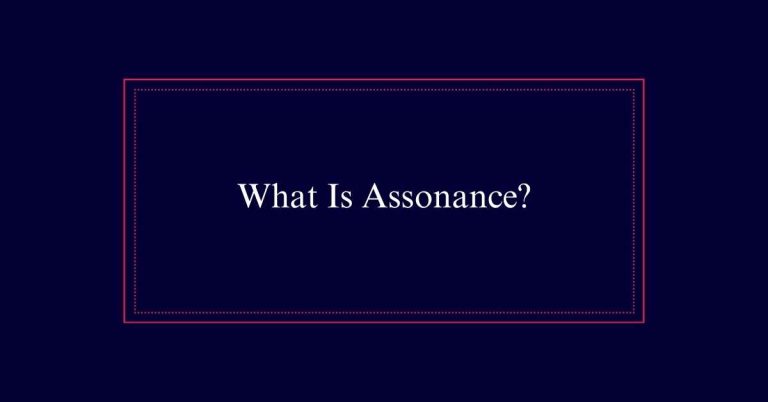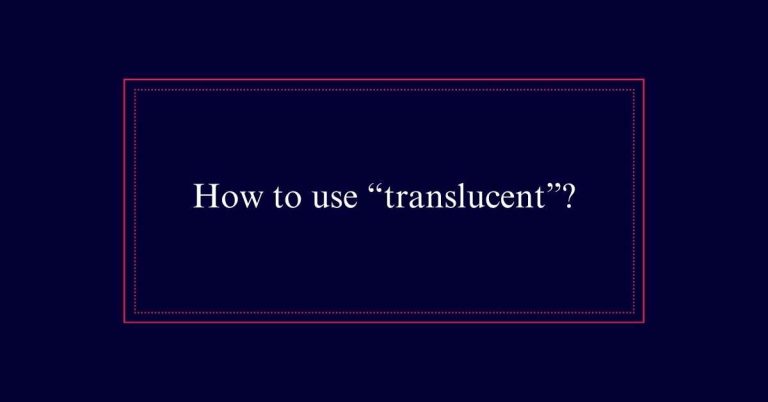Who or Whom?
Use ‘who’ as the subject of a sentence, as it performs the action (e.g., ‘Who is calling?’). Use ‘whom’ as the object of a verb or preposition, as it receives the action (e.g., ‘To whom did you speak?’). To test which to use, substitute ‘he’ or ‘him’: if ‘he’ fits, use ‘who’; if ‘him’ fits, use ‘whom’.
Understanding ‘Who’
‘Who’ is a pronoun used as the subject in a sentence. It performs the action in the sentence.
For example, in ‘Who would like to go on vacation?’ the word ‘who’ is the subject doing the action of liking. Similarly, in ‘Who made these awesome quesadillas?’, ‘who’ is the subject performing the action of making.
Using ‘who’ correctly helps guarantee clear communication. To verify its use, substitute ‘who’ with subject pronouns like ‘she’ or ‘they’. If the sentence still makes sense, ‘who’ is correct.
For example, ‘Who ate my sandwich?’ becomes ‘She ate my sandwich,’ confirming ‘who’ as correct. Understanding ‘who’ as a subject pronoun is essential for proper grammar.
Using ‘Who’ Correctly
Mastering the correct usage of ‘who’ guarantees clear and grammatically sound communication. Who’ is used as the subject of a sentence or clause. For instance, in the question ‘Who would like to go on vacation?’ ‘who’ acts as the subject performing the action of liking.
Another example is, ‘Who made these awesome quesadillas?’ Here, ‘who’ is the subject creating the quesadillas.
To make sure of correct usage, replace ‘who’ with a subject pronoun like ‘she’ or ‘they.’ If the sentence makes sense, ‘who’ is the right choice. For example, ‘Who ate my sandwich?’ can be tested with ‘She ate my sandwich.’ This substitution confirms ‘who’ is correct.

‘Who’ as a Subject
In grammar, ‘who’ functions as the subject of a sentence, performing the action or being described. It takes the place of nouns that serve as the main actor in a clause.
For instance, in the sentence ‘Who will attend the meeting?’, ‘who’ is the doer of the action—attending. Similarly, in ‘Who is responsible for this project?’, ‘who’ is being described as responsible.
Using ‘who’ correctly helps guarantee clarity in communication. It fits naturally when substituting with subject pronouns like ‘he’, ‘she’, or ‘they’. If the sentence still makes sense, ‘who’ is the appropriate choice.
Examples of ‘Who’
To illustrate the usage of ‘who’ as a subject, consider the following examples.
In the sentence, ‘Who would like to go on vacation?’ the word ‘who’ serves as the subject, asking for the identity of the person interested in going on vacation.
Another example is, ‘Who made these awesome quesadillas?’ Here, ‘who’ identifies the person responsible for making the quesadillas.
Additionally, ‘Who drives her mother’s car to school?’ uses ‘who’ to inquire about the person performing the action of driving.
In each case, ‘who’ is the subject of the sentence, performing or responsible for the action being described.
Understanding ‘Whom’
Understanding ‘whom’ is essential for mastering the correct use of objective pronouns in English. Whom’ serves as the object of a verb or preposition.
For example, in the sentence ‘Whom do you believe?’ ‘whom’ is the object of the verb ‘believe’. Similarly, ‘Whom was the letter addressed to?’ uses ‘whom’ as the object of the preposition ‘to’.
A practical method to identify ‘whom’ is to substitute it with ‘him’, ‘her’, or ‘them’. If these pronouns fit, then ‘whom’ is correct.
For instance, ‘I do not know with whom I will go’ becomes ‘I do not know with him/her/them.’
Using ‘Whom’ Correctly
Mastering the use of ‘whom’ guarantees that your writing adheres to formal grammatical standards. ‘Whom’ functions as the object of a verb or preposition. To use it correctly, identify whether the pronoun is acting as an object in your sentence.
For instance, in the sentence ‘Whom did you invite?’ ‘whom’ is the object of the verb ‘invite.’
Another method is to replace the pronoun with ‘him’ or ‘her’. If the sentence still makes sense, ‘whom’ is the correct choice. For example, ‘You invited him’ aligns with ‘Whom did you invite?’
Consistent practice in identifying the object in sentences will enhance your accuracy in using ‘whom’ correctly.
‘Whom’ as an Object
In English grammar, ‘whom’ serves specifically as the object of a verb or preposition. It is used when referring to the person receiving the action or when it follows a preposition. Understanding its role can simplify sentence construction and improve clarity in writing.
Key points to remember:
- ‘Whom’ follows a preposition (e.g., to, with, for).
- Used as the object of a verb.
- Often replaced by ‘him,’ ‘her,’ or ‘them’ in informal speech.
- Essential for formal writing.
Using ‘whom’ correctly ensures precision and professionalism.
For instance, ‘To whom should I address this letter?’ is more formal and appropriate than ‘Who should I address this letter to?’.
Examples of ‘Whom’
‘Whom’ is often used in formal writing to indicate the object of a verb or preposition. For example, ‘Whom did you invite to the meeting?’ Here, ‘whom’ is the object of the verb ‘invite.’
Another example is, ‘With whom are you going to the concert?’ In this case, ‘whom’ is the object of the preposition ‘with.’
Consider the sentence: ‘The professor, whom the students admired, gave an inspiring lecture.’ ‘Whom’ is the object of the verb ‘admired.’
Lastly, ‘To whom should I address this letter?’ shows ‘whom’ as the object of the preposition ‘to.’
Subject Vs. Object
Understanding the difference between a subject and an object is essential for correctly using ‘who’ and ‘whom’.
The subject performs the action, while the object receives the action. For example, in ‘Who called?’ ‘who’ is the subject. In ‘Whom did you call?’ ‘whom’ is the object.
To determine whether to use ‘who’ or ‘whom’, follow these guidelines:
- Replace ‘who’ with ‘he’ or ‘she’; if it fits, use ‘who’.
- Replace ‘whom’ with ‘him’ or ‘her’; if it fits, use ‘whom’.
- ‘Who’ is always the subject of a clause.
- ‘Whom’ is always the object of a verb or preposition.
Common Usage Tips
Many people find using ‘whom’ correctly challenging, but a few tips can make it easier.
First, remember that ‘whom’ is used as the object of a verb or preposition. For example, ‘Whom did you see?’
Second, try substituting ‘him’ or ‘them’ for ‘whom’ and ‘he’ or ‘they’ for ‘who’ to see if it makes sense. For instance, ‘To whom should I give this?’ becomes ‘I should give this to him.’
Third, in casual speech, ‘whom’ is often omitted. However, knowing the rules helps in formal writing.







